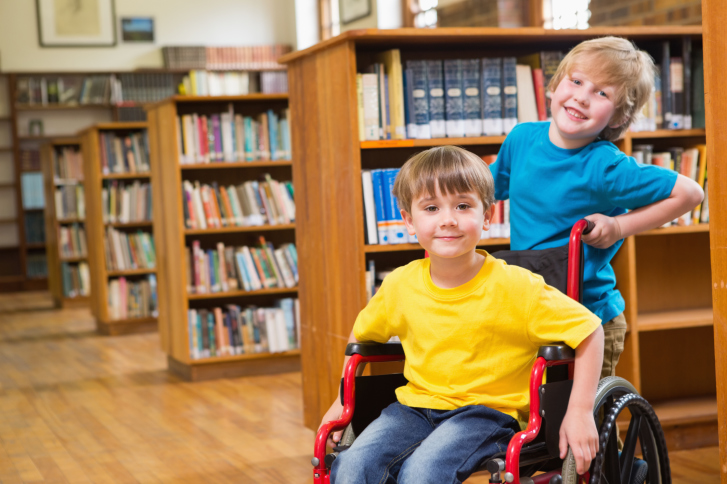If you have a child with a disability, you know how other children can react upon first meeting them and noticing their disability. Or perhaps you have just introduced a new member to your family who has a disability, and your other children who do not have any disabilities need a little help adjusting and learning. Some children are immediately sweet and accepting while others need additional help to understand what it means to have a disability. Young kids are still working on developing their capacity for empathy, so when a child asks you about your child with a disability, it is a unique opportunity to teach them how to see the world from your child’s shoes.
It’s Okay to Ask Questions
The first thing you should assert to other children who interact with your child who has a disability is that it is okay to ask you questions. A child may simply stare speechless; this is a good opportunity to matter-of-factly explain your child’s disability. When a child sees you acting calm and at ease around your child with a disability, it encourages them to see your child as someone who is just like them; just with a disability.
Use Respectful, Factual Language
Talking calmly, respectfully, and factually about your child’s disability teaches other children to mirror your language. Children are always learning, and they will pick up on your language cues. When speaking about your child who has a disability, it’s important to separate your child from the disability. So, for example, instead of saying “he’s autistic”, say instead “he has autism” or “he’s on the autism spectrum”.
Point Out Similarities
It’s hard for young children to relate to other people, much less people who have disabilities. Learning about similarities that they share with others is an important part of teaching children to empathize. Pointing out how you and your other children or your child’s classmates are similar can help them to empathize with your child. Other children will soon understand that your child is not your child’s disability; that your child is a person who shares many of the same feelings, likes, and dislikes.
Emphasize Strengths
Children are good at recognizing differences. It’s our job to make sure that they are focusing on strengths rather than weaknesses. If your child walks with a leg brace, one of their classmates may point out that “they can’t walk well”. This is an opportunity to ask them “what do they do well?” Helping children to focus on strengths can help them to have better, more supportive and successful relationships with your child who has a disability.
The Connections Therapy Center
The Connections Therapy Center is a top therapy center serving families of children and adolescents with disabilities. Our team consists of the leading experts in the fields of pediatric speech, occupational therapy, speech-language pathology, and behavior sciences. We offer intensive, hands-on therapy for children and adolescents as well as resources for families. We are real therapists helping real families with real issues. If you are concerned about your child’s behavior, take a moment to fill out our quick questionnaire. If you’d like to schedule an appointment, call 202-561-1110 (Washington, D.C. office) or 301-577-4333 (Lanham office) or contact us via our website. Want to keep up with our latest news and blog posts? Follow us on Facebook, Twitter, Google+, and Pinterest.

